Welcome to the home page for the first half of the Summer Term 2024.
Our topic for this half term is Grow, Sow, Farm. This is a geography based topic based on agricultural land use in the UK. This will involve looking at different types of farming and sustainable farming. In the second half of the Summer Term, we will look at the seasonality of foods and take part in some cooking sessions. As much as possible, we will make cross-curricular links with our other subjects. Please look at the topic web for further information.
This blog about our learning, will be updated every two weeks.
Our learning – week ending Friday 24th May
What an amazing week we had to complete the end of Summer Term 1: we celebrated Wellness Week with different events over the course of the week and lots of inspiring visitors in assembly to talk to us about how to keep healthy.
We kick-started the week on Monday by learning about the origins of the modern Olympic Games. This built on our learning from last term when we studied the Ancient Greek civilisation. We researched the ancient games through guided reading and then did some independent research online to find out about the modern Olympic Games. After that, we compared the ancient and modern Olympic games. We were also very lucky as Mrs Bohane came into school to lead a muscle strengthening and movement activity with us outside.
On Monday afternoon, we discovered which continent we would be representing in our school Olympic games on Wednesday. We then went into those groups to learn a little about the continent, its countries and to make flags and a banner for our Olympic games parade. It was lots of fun to have the opportunity to work with different children and adults to complete the task.
Tuesday saw our final visit of the year from our friends at the local Fratelli Maristi School. A group of key stage 2 aged children visited us here to take part in lots of fun activities centered around sport including a quiz, a board game, cricket and a mini-Olympic games.
Our school Sports’ Day took place on Wednesday. We participated in continent teams of Africa, Asia, Australasia and the Americas. The children participated in a round-robin of activities all of which accumulated points for their team. They then took part in individual sprint and relay races. It was lovely to see such drive and determination from the children to do their very best. So many of the Olympic values were on display across the day.
Thursday saw a zumba work-out for Year 5 while Year 6 went on a transition visit to the American Elementary school.
We even managed to squeeze in some normal learning and do the auditions for our production – Alice in Wonderland. What an inspiring week. We are all looking forward to the summer Olympics in Paris now.
Our learning – week ending Friday 17th May
We’ve had another jam-packed learning two weeks in Lamborghini Class!
Year 6 finished the week on 17th May with a sigh of relief as they completed their SATs tests. They enjoyed coming to school each day and sharing a breakfast of cornetti before starting their test. We are so incredibly proud of the determination and concentration Year 6 put into completing their tests. We know the children did their very best. You were fantastic role models. Well done!
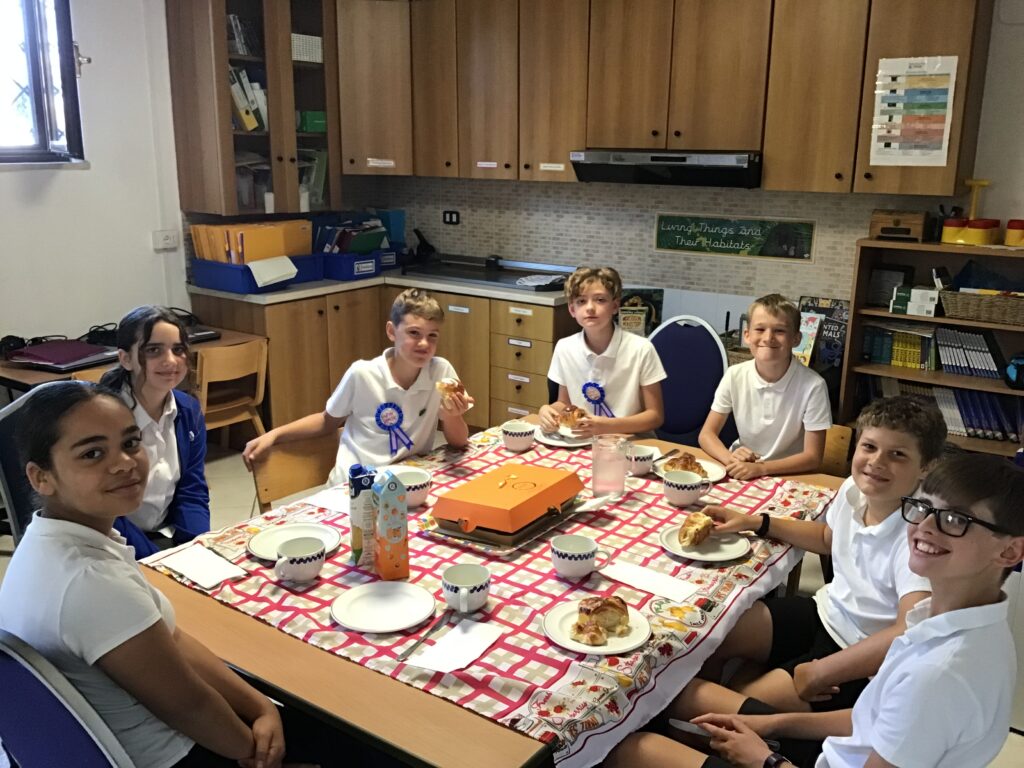
Year 6 had an exciting Friday because as a treat, year 6 did some cooking on Friday – they made delicious rocky road with Mrs Grady.
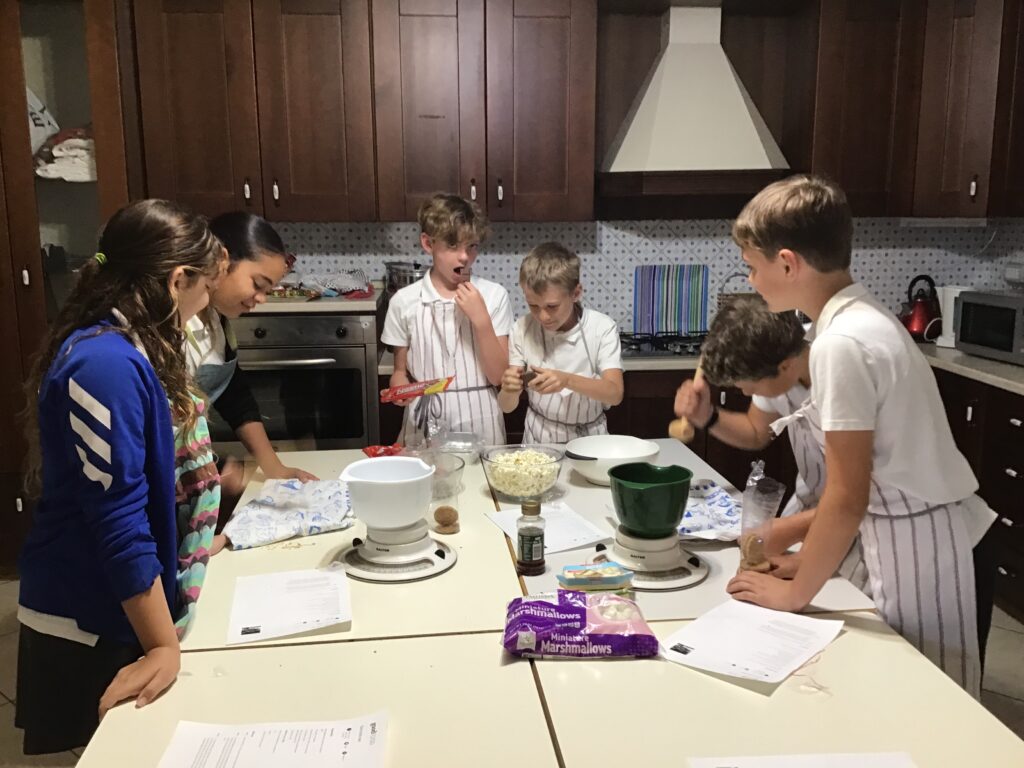
An then in the afternoon, the Royal Artillery Rugby Team came into school and ran some workshops with the children. It was such great fun!
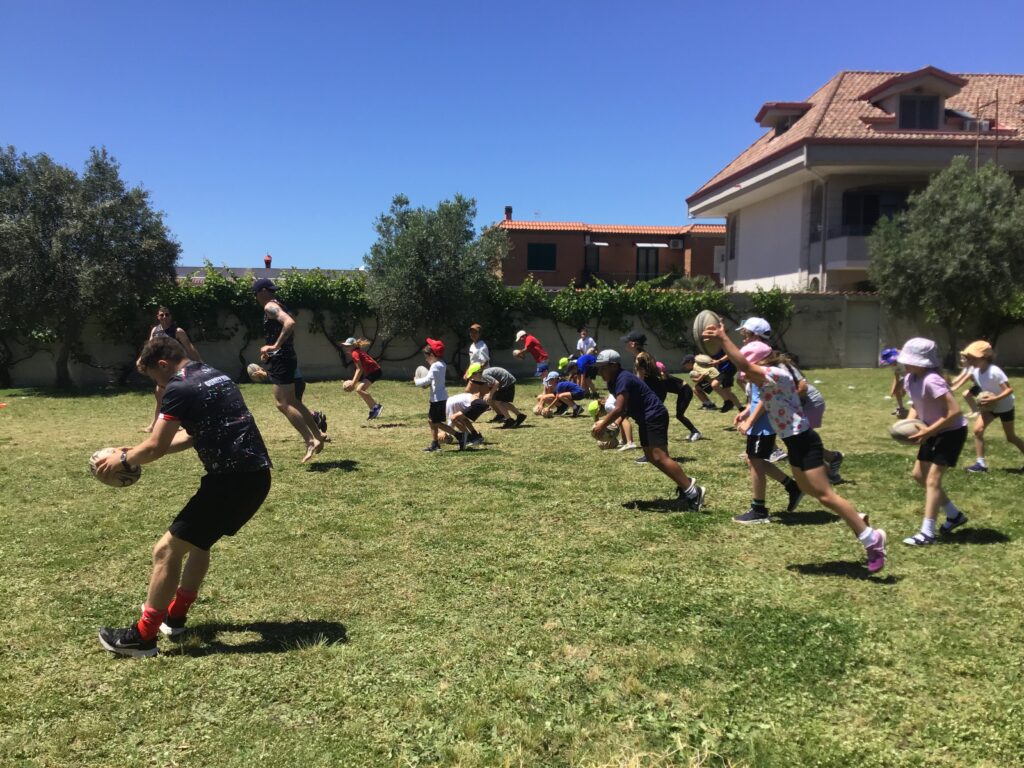
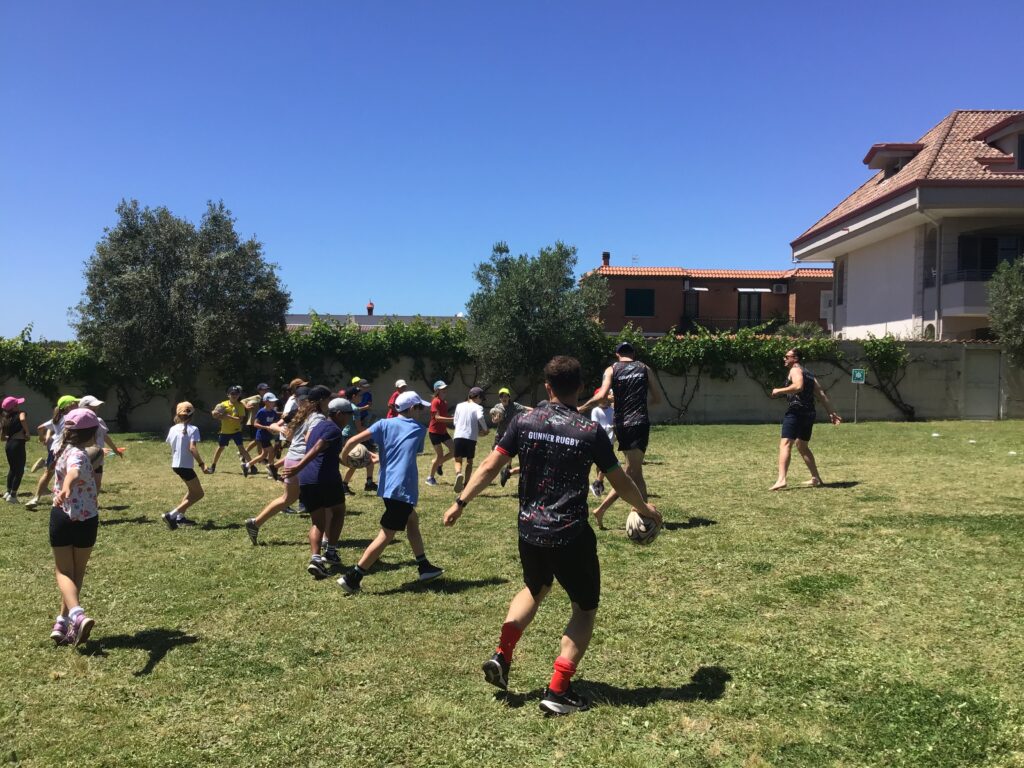
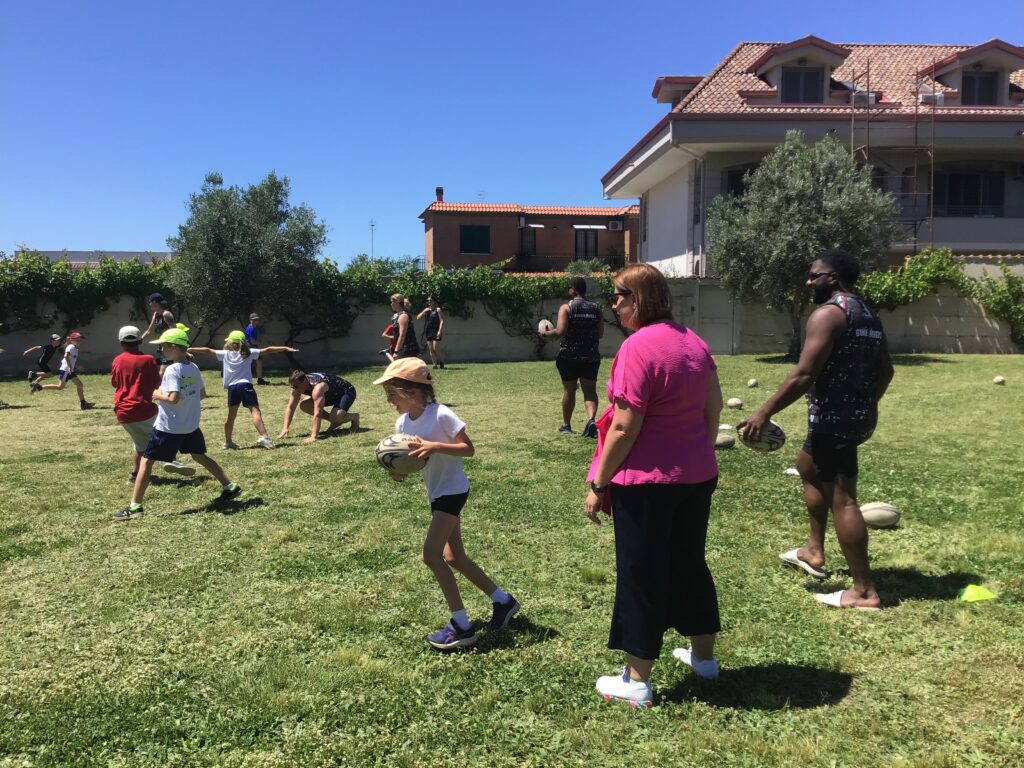
In our science learning, we continued learning about living things by exploring the lifecycles of flowering plants, and how plants are able to reproduce sexually and asexually. We then compared the lifecycle of a plant to that of a mammal.
Later, we moved on to looking in depth at the parts of a flowering plant so we understood the role each part played in the plant reproduction process. One we knew the different parts of a flower and their function, we were able to dissect a real flower to find the different elements.
Our learning – week ending Friday 3rd May
Over the last two weeks in geography, we have begun to look more closely at the types of farming found in the UK and Italy. We began by considering the three factors which affect agricultural land use: climate, topography and soil type. Once we knew this, we looked at maps of the UK and Italy to understand why certain types of farming are found where they are.
Italy has mountainous areas in the North and through the centre which means arable crops tend to be grown on the flatter areas. The west coast of Italy receives more rainfall per year than the east coast which also affects the crops grown. Once we had completed our land use maps of Italy, we were able to research facts about the types and amounts of food that are grown and exported from Italy.
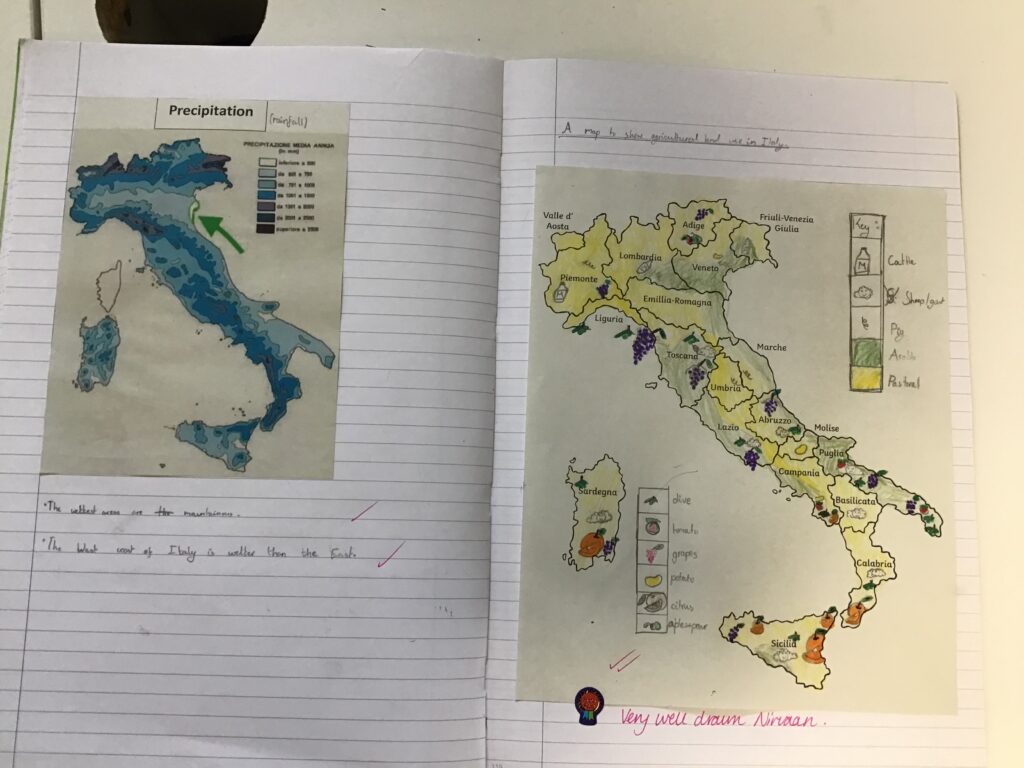
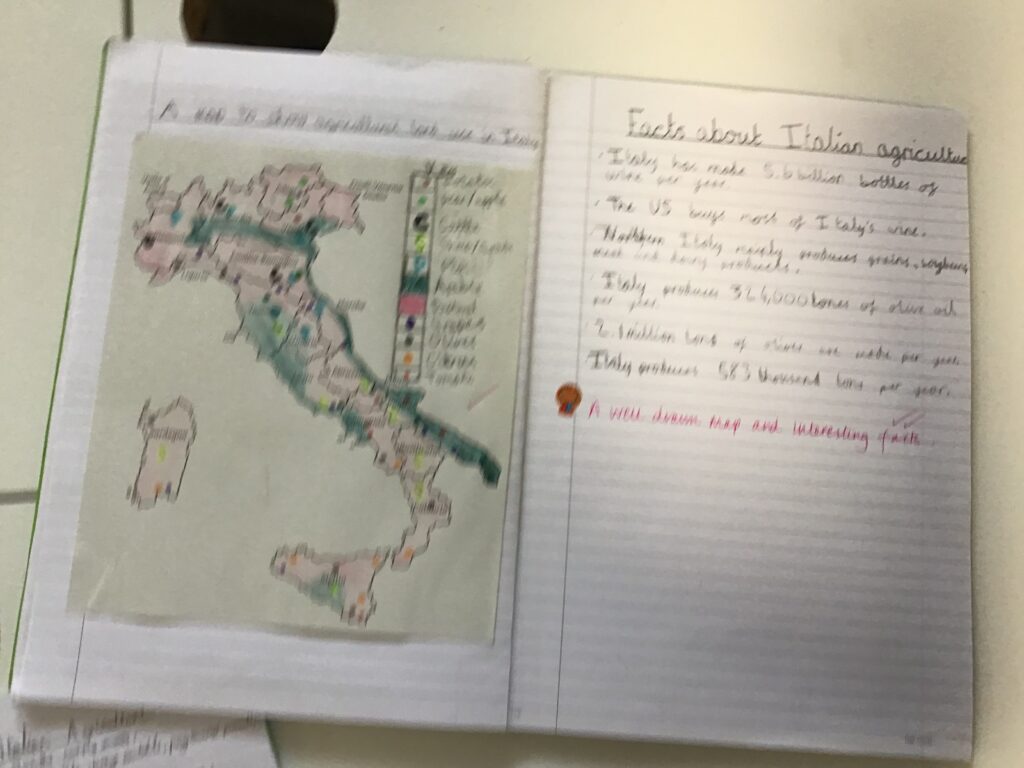
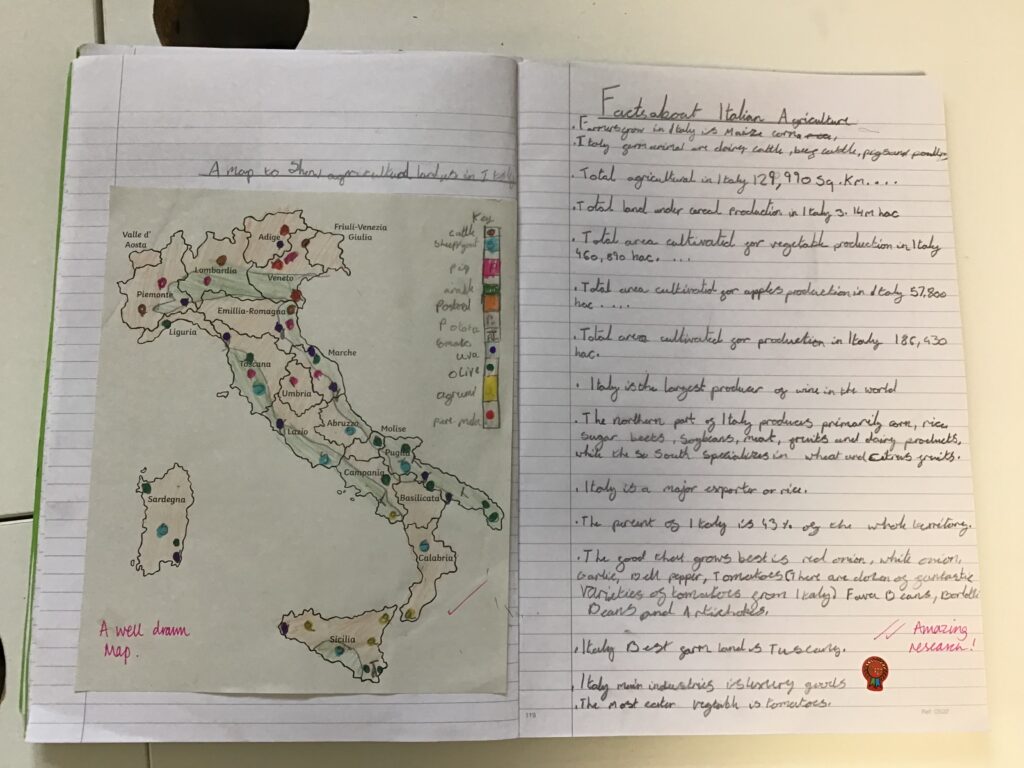
We have spent the last few weeks working with Mrs Lewis to create a piece of artwork as part of our reflection during the month of the Military Child. The children used the symbol of the dandelion (the symbol of the Month of the Military Child) and Vesuvius to create their watercolours on paper. We think you’ll agree that the final pieces are stunning. Well done Lamborghini Class.
For our music this half term, we are learning about samba music. Samba is used to describe many of the rhythms that originates from Brazil. We have started to learn some basic samba rhythms and are playing them using percussion instruments.
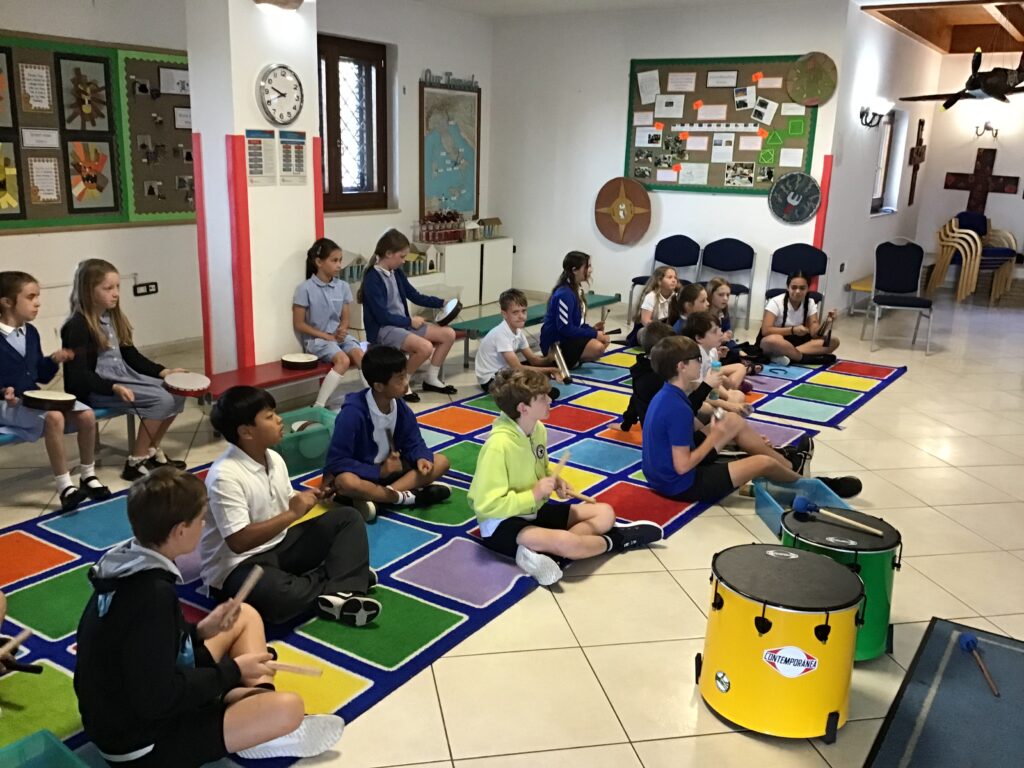
Our learning – week ending Friday 19th April
We started the new term with lots of sunshine; summer definitely arrived! It was lovely to have everyone back in school and ready to learn.
To support the start of our new topic, Grow, Sow, Farm, the children took part in a geographical problem-solving exercise. We learnt about allotments and then had to work in teams to consider three proposals for a hypothetical new allotment site. They had to consider factors such as soil type, access to water, parking and security. In addition to this, the children explored the key vocabulary related to the topic including agriculture, organic farming, pesticides, seasonality, floriculture, pastoral and arable.
We are using a beautiful text to support our learning in English. The book, ‘Animalium’ is presented as a museum full of information and stunning illustrations about animals and habitats around the world. The outcome of the unit will be to write our own information page about an animal, in the style of Animalium, for inclusion in a class book.
Over the past two weeks, we have explored the book – looking at how the information is presented and its layout. We then looked more closely at the way it is written and created a writerly knowledge chart of all of the techniques we will need to use to write in a similar way. In addition to this, we took a section of text about a snake and used this to extract the key descriptive information in order to label a diagram of the animal.
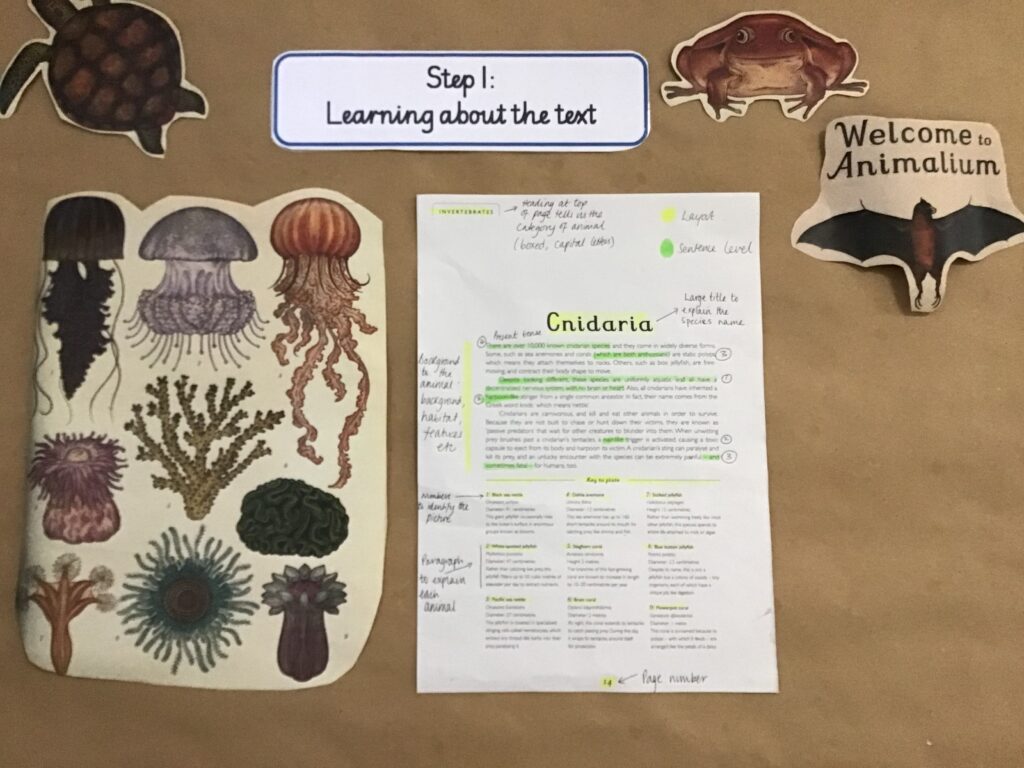
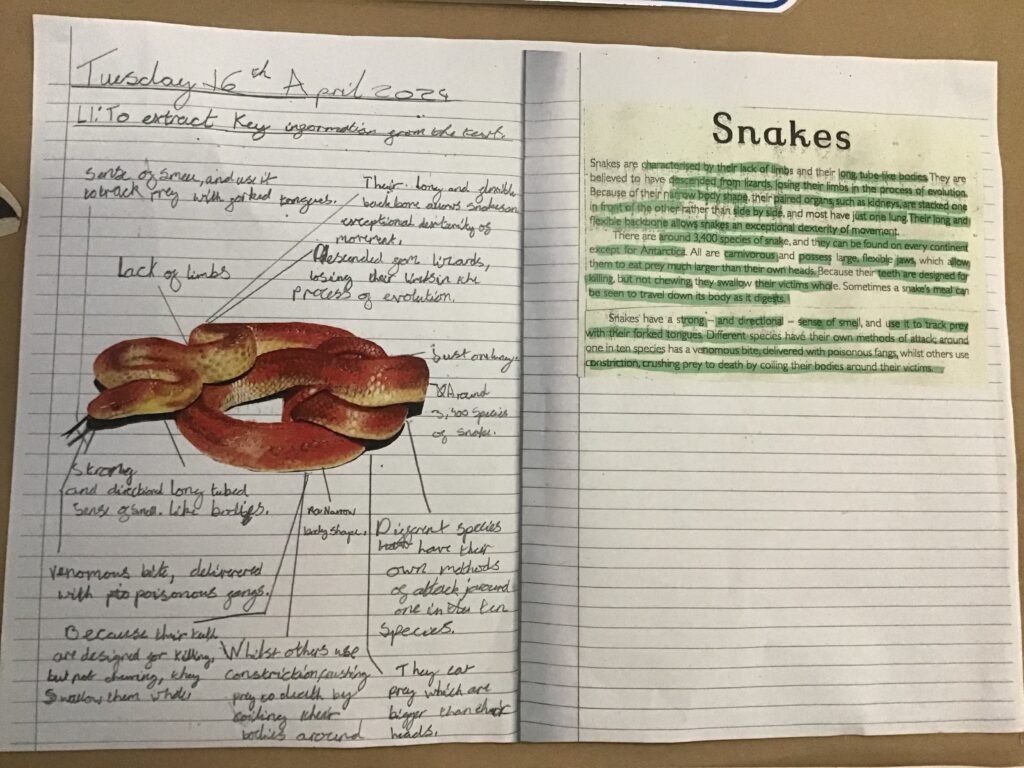
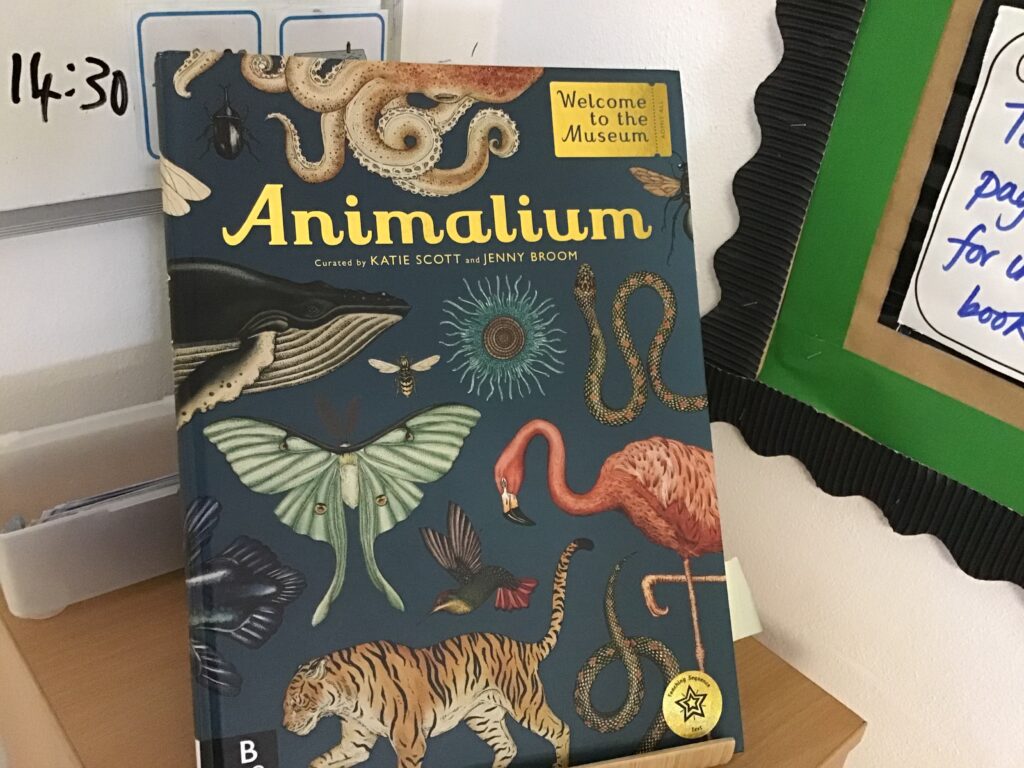
In maths over the last two weeks, we have finished off our learning about fractions, decimals and percentages. Year 5 have been focusing on representing thousandths as fractions and decimals and then moved onto to learning about percentages. Year 6 have been practising finding tricky percentages of amounts including finding 97% or 28%. They have also recapped using ratios.
Our new science unit on Living things and their habitats started with the children learning about food webs. We used our new knowledge about allotments to learn about the different living things that exist together in the habitat. We leant the terms producer, primary, secondary and tertiary consumers, and apex predator and matched them to the living things including oak tree, rabbit, caterpillar, thrush, shrew and fox. We then made a giant food web, each of ourselves representing one of the living things. This enabled us to simulate what would happen if there was a reduction or increase in one of the species.
We also compared the lifecycles of amphibians, insects, birds and mammals. We used playdoh to make the stages of a frog’s lifecycle.
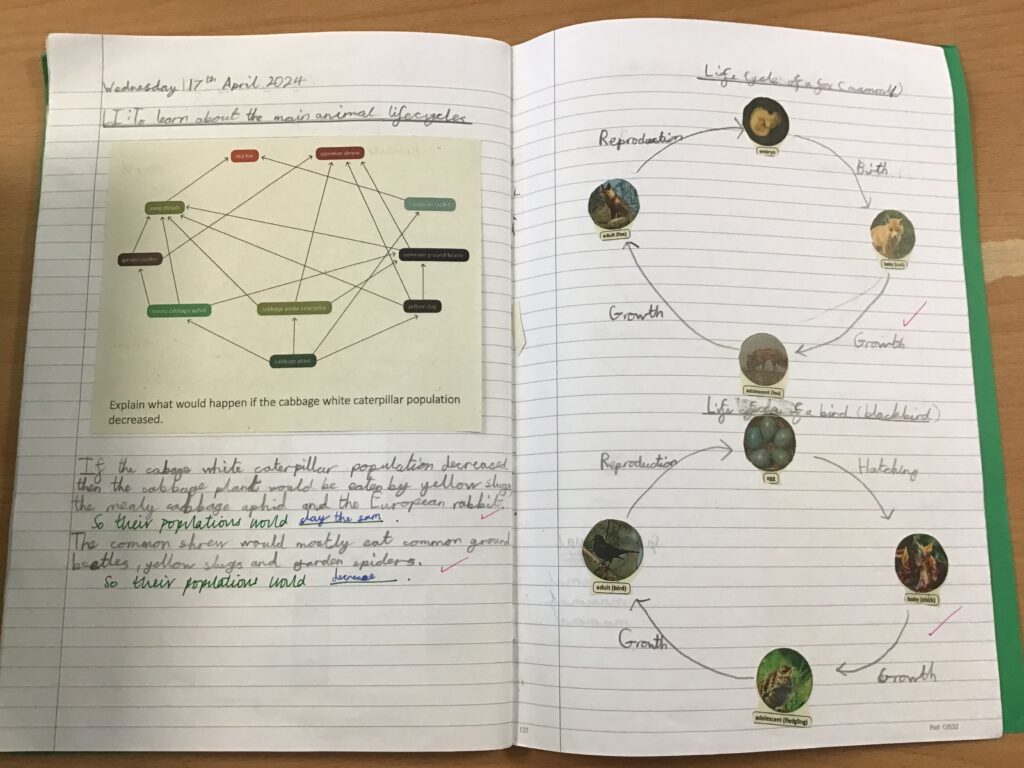
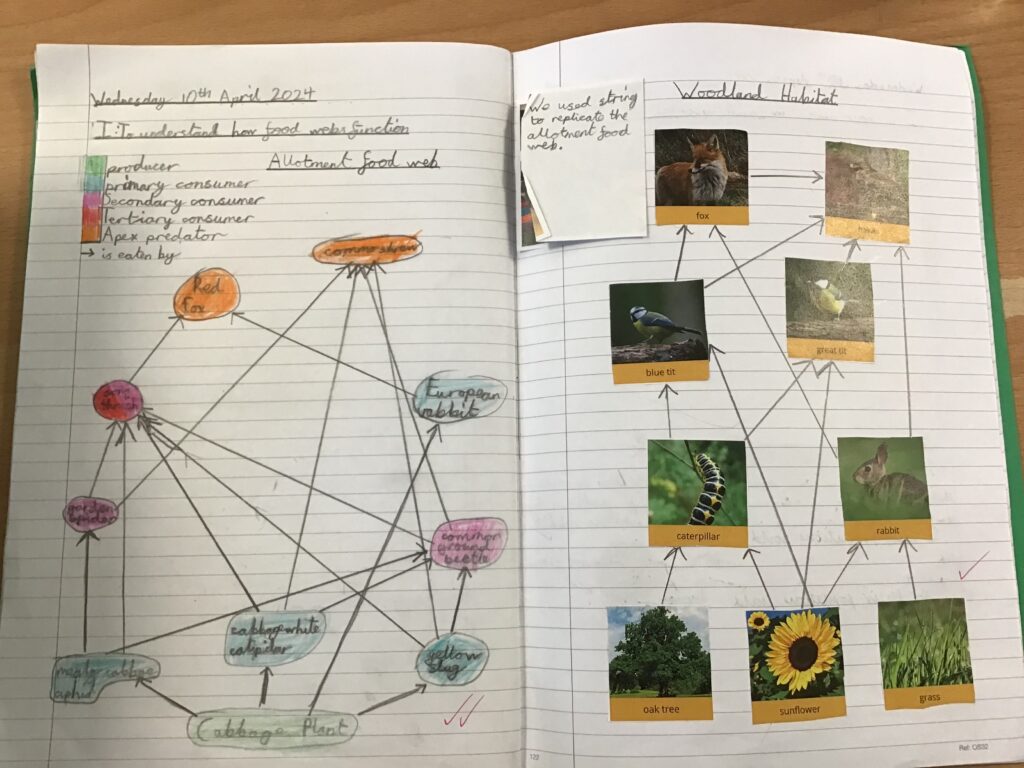
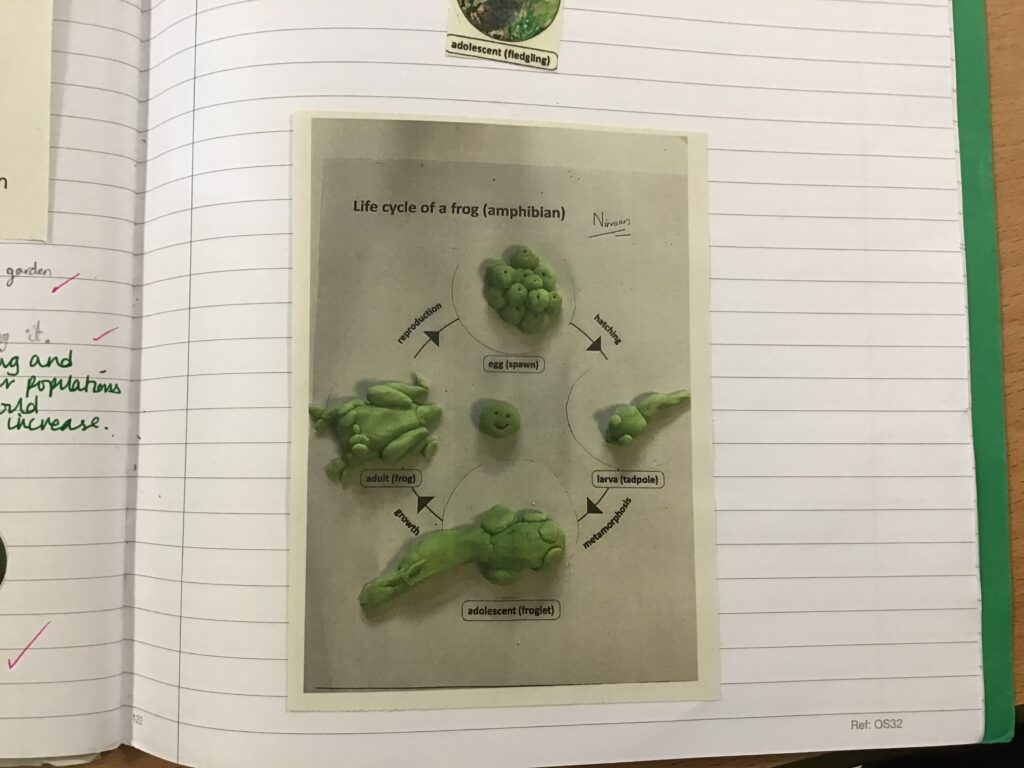
As April is the month of the Military Child, we have been considering what it actually means to be a military child. We have had a special assembly; we are learning a special song on Tuesdays with Mrs Wortley and we have begun a piece of artwork with Mrs Lewis. In our PSHE lesson, the children reflected on the skills they have as military children and some of the positive and negative things associated with it. They went onto draw their life journey as a military child.